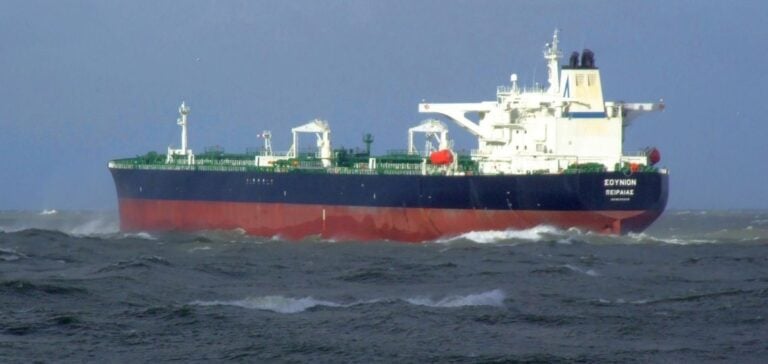The Greek tanker Sounion, targeted by Houthi rebels in the Red Sea last August, has begun the transfer of its crude oil cargo to another tanker, the Delta Blue, in the Suez Canal this week. This incident marks a new escalation in tensions in this strategic region, where the Houthis are intensifying attacks on vessels they consider hostile.
After being damaged during the August attack, the Sounion had to be towed to the port of Suez to prevent a potential environmental catastrophe. The tanker carries more than one million barrels of crude oil, approximately 150,000 tons, an amount that could cause devastating environmental consequences in case of a spill. The transfer is currently underway under the supervision of Delta Tankers, the Greek company owning both the Sounion and Delta Blue, and is expected to last between three and four weeks, according to the Greek news agency ANA.
Attack in the Red Sea: An International Political and Military Response
On August 21, the Houthis launched a targeted attack on the Sounion off the coast of Yemen. This incident led to the evacuation of the crew of 25 sailors by a French frigate from the European Union’s naval mission in the region. The Houthi rebels, who control strategic areas in Yemen, claim to be targeting ships associated with nations allied to Israel, the United States, or the United Kingdom, accusing them of supporting their geopolitical and military adversaries in the region.
Given the increasingly frequent disruptions in this crucial maritime route, the United States has mobilized a maritime surveillance coalition to secure international trade in the area. The Houthi attacks aim to disrupt traffic, exacerbating diplomatic tensions and prompting many powers to deploy defense resources in this major oil transit area.
Environmental Risk: Authorities Heighten Vigilance
The towing of the Sounion to the port of Suez last September required a large-scale mobilization, involving a tugboat, three frigates, helicopters, and a special forces team to prevent an environmental crisis. Experts had warned of the potential consequences of a sinking, which would have caused an oil spill four times larger than that of the Exxon Valdez disaster in 1989 in Alaska.
The Greek authorities and the Ministry of Merchant Marine, while discreet on the details of the operation, ensure that the cargo transfer is proceeding under strict control. All measures are being taken to avoid any risk of spillage, even as the situation in the Suez Canal remains under high security.
The Houthis: A Major Factor in Maritime Tensions
The Houthis, who control vast regions in Yemen, have been escalating targeted attacks on ships they identify as symbols of Western alliances. These actions aim to address geopolitical conflicts involving Israel, the United States, and their allies, and to support the Palestinian cause amidst Middle East tensions. The increased presence of the Houthis and their operations against tankers in the area highlight the vulnerability of this strategic transit zone.
The repeated attacks in this essential maritime route continue to mobilize international military resources, with the United States and the United Kingdom playing a leading role in securing this oil shipping route. This situation illustrates the complexity of energy and diplomatic issues in the region.






















